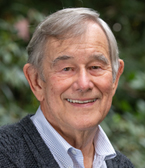First-ever state ranking of charter student performance on the National Assessment of Educational Progress
General Audience Articles
The Covid-19 pandemic prompted the largest disruption to American education in living memory. At the onset of the crisis in spring 2020, nearly every K–12 school, public and private, closed its doors. At the start of the next school year, the decision to reopen for in-person instruction or to continue operating remotely varied widely among regions of the country, across school sectors—traditional district, charter, and private—and even from school to school in a given community.
“I don’t think parents should be telling schools what they should teach,” commented former Virginia governor Terry McAuliffe, a Democrat, while seeking a return to office in 2021. His Republican opponent, Glenn Youngkin, wove McAuliffe’s remark into a campaign that was making education its centerpiece. When Youngkin defeated McAuliffe in an upset, many pundits declared parent activism to be a deciding factor.
Has the achievement of U.S. students improved over the past half century? Have gaps between racial, ethnic, and socioeconomic groups widened or narrowed?
“They’re not good,” the head of a Fortune 500 company lamented about U.S. schools not long ago. “Students learn little, education gaps are widening, and not much can be done about it.” Pressed on the matter, he relaxed. “It’s not a serious matter. Our universities are excellent, and we can import the talent we need—though we do need to worry about social peace.” Sadly, his public comments (which I’m paraphrasing here) neatly summarize private conversations heard when business and civic leaders gather. A few years back, a prominent U.S.
With much the same characters and plot lines as The Brothers Karamazov, though absent its gripping prose, Hostages No More evokes memories of Fyodor Dostoevsky’s masterwork on good and evil. Former Secretary of Education Betsy DeVos admits she does not have “a way with words,” but larger-than-life forces and personalities propel themselves straight through the vanilla writing and overwhelm Horatio Alger-style vignettes about families who chose their schools.
As folk wisdom has it, the apple doesn’t fall far from the tree. And research shows that children are generally shaped more by life at home than by studies at school. College enrollment, for instance, is better predicted by family-background characteristics than the amount of money a school district spends on a child’s education. Some parents have a specific vision for their child’s schooling that leads them to keep it entirely under their own direction.
Calamities often disrupt the status quo. After the influenza pandemic that began during World War I and lasted two years, many Europeans turned to socialism, fascism, and Bolshevism. In the United States, the Wall Street Crash of 1929 followed by the Great Depression induced many people to reject laissez-faire capitalism in favor of Franklin Delano Roosevelt’s New Deal, with its social safety-net programs, public-works projects, and government regulations.
The 15th annual Education Next survey, conducted in June 2021, yields a host of specific results that reveal one large fact about the current state of public opinion on American education: The public is cautious—extremely cautious. In the presence of a still-circulating Covid-19 virus, a large percentage of parents and the broader public want schools to take strong measures to keep children safe as they return to school. Yet many parents are not ready to risk the injection of a Covid vaccine into their child’s arm, even as government agencies testify to its safety and effectiveness.
How can we improve academic achievement and college attainment for disadvantaged students? To address this question, education researchers typically assess the impact of various interventions on all students whose family income falls under the limit for free or reduced-price school lunch—a broad category that fails to account for the effects of ethnicity and class in combination, as well as the considerable differences in economic and cultural resources among lower-income families in the United States.
Nuggets of amber occasionally reward patient beachcombers who wade through miles of cold, gray clay on the southern shores of the Baltic Sea. Nuggets likewise await the patient reader who wades through this dense, repetitive private-school apology.
President-elect Joe Biden has made reopening a majority of K–8 schools for in-person instruction a priority for his administration’s first 100 days, with the goal of getting more American students safely back into the classroom. Yet neither information gathered so far by researchers, nor data reported by the federal government and the states, can say where the nation stands with respect to that goal. While various organizations have tracked school districts’ stated policies on reopening, those policies defy easy categorization and may not capture reality on the ground.
The number of charter schools grew rapidly for a quarter-century after the first charter opened its doors in 1992. But since 2016, the rate of increase has slowed. Is the pause related to a decline in charter effectiveness?
For 14 years, the Education Next annual survey has tracked American opinion on education policy. We have gauged people’s views through the throes of the Great Recession, dramatic changes in partisan control in both Washington, D.C., and state capitols, and attendant shifts in the direction of federal and state education policy. None of that compares to the disruption that unfolded this spring, as the Covid-19 pandemic closed schools nationwide and brought the American economy to its knees.
There’s no denying political climate change. The past 18 months have seen an enormous swing in the Washington power balance, a shift that has heightened the polarization that has characterized our public life for more than a decade now. How has this divisive political climate influenced public opinion on education policy and reform? And how much, if at all, has the new president swayed the public’s views?
